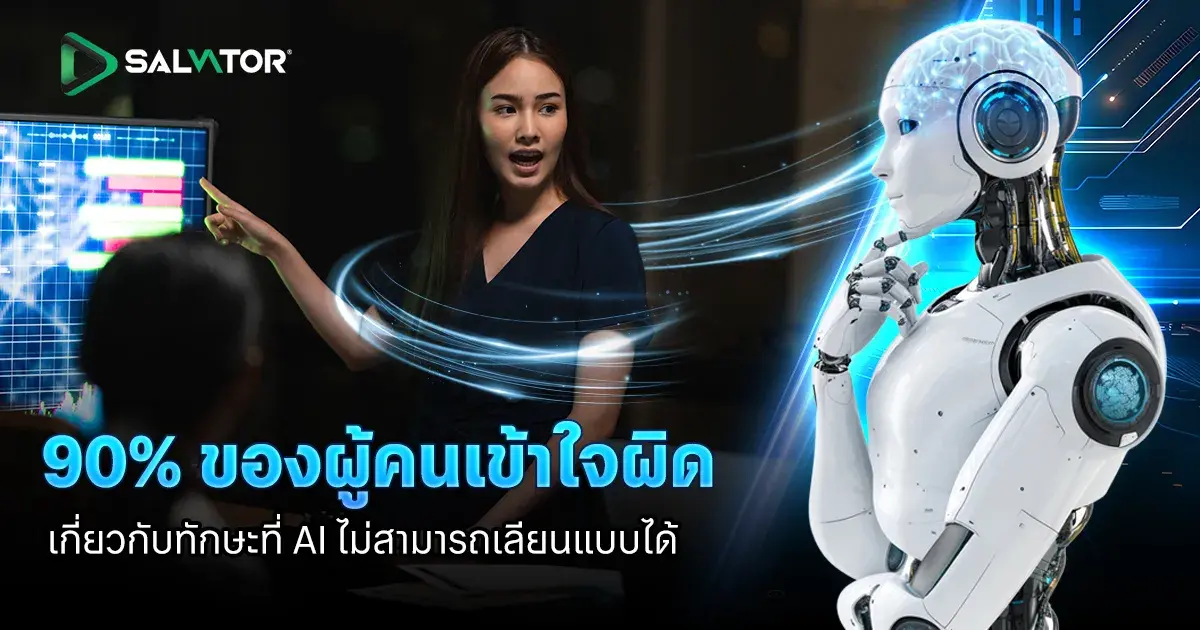What Jobs Are "Safe" from Robots by 2030? 90% of People Misunderstand the Skills AI cannot replicate

The Biggest Misconception About AI and Robotics
Many people believe that jobs requiring "creativity" or "technical skills" are roles AI cannot replace andwill be safe from AI, but the opposite is true. AI tools like ChatGPT, Midjourney and GitHub Copilot have proven capable of creating impressive art, writing code, and composing music. The shocking truth: the safest jobs are not those that require being "smart," but those that require genuine humanity truely.
Table of Contents
5 Jobs AI Cannot Replace (Until 2030)
1. Empathy and Emotional Connection (Empathy)
AI can analyze emotions but cannot truly "feel." Jobs requiring this: comforting palliative care patients, counseling those suffering loss, and building trust with clients in sensitive situations.
Example Professions: Nurse, Psychologist, Cancer Counselor, Relationship Coach
2. Complex Decision-Making in Uncertain Contexts
AI makes decisions based on data, but real life is full of situations with no single "right answer," such as negotiating international political disputes or making ethical decisions in emergencies.
Example Professions: Judge, Diplomat, Crisis Manager, Ethics Committee Member
3. Creativity Stemming from Human Experience
AI can create, but it is a "mixture" of existing elements, not the creation of truly "novel concepts" born from life experience. Examples include an artist reflecting personal pain through their work or an inventor devising a solution from a real-life problem.
Example Professions: Contemporary Artist, High-Level UX Designer, In-Depth Article Editor
4. Physical Work in Unpredictable Environments
Robots excel in factories but still struggle to operate well in the unpredictable real world, such as a repair technician needing to navigate confined spaces or an elderly caregiver gently assisting with mobility.
Example Professions: Repair Technician, Elderly Caregiver, Physical Therapist, Gardener
5. Trust and Long-Term Relationship Building
People buy from people, not code, especially in businesses that require a high degree of confidence, such as a personal financial advisor or a real estate agent who understands a family's needs.
Example Professions: Financial Advisor, Real Estate Agent, Lawyer, Specialist Physician
The "Safest" Professions in 2030
Safety Level | Example Professions | Key Reason |
Very High Safety (90-100%) | Palliative Care Nurse, Clinical Psychologist, Supreme Court Judge, Contemporary Artist | Requires deep empathy, emotional connection, and ethical decision-making. |
High Safety (70-89%) | Special Education Teacher, Social Worker, Human Resources Manager, Executive Business Consultant | Requires conflict management, complex communication, and strategic guidance. |
Moderate Safety (50-69%) | Gardener/Landscape Architect, Michelin-Star Chef, Social Science Researcher, Film Director | Requires adaptability to real-world environments and creativity integrated with culture/vision. |
Jobs People Think Are "Safe" But Are Actually at Risk (of partial replacement by AI)
⚠️ Programmer/Coder: AI is getting better at writing code every day (GitHub Copilot generates 40% of a project's code).
⚠️ Graphic Designer: Midjourney and Adobe Firefly can create designs in seconds.
⚠️ Accountant: AI systems can automate nearly all basic bookkeeping tasks.
⚠️ Translator: ChatGPT translates languages remarkably close to human quality.
⚠️ Pharmacist: AI systems check medication dispensing and drug interactions more accurately than humans.
How to Prepare for 2030: Develop "Human Skills"
For Employees:
Develop Soft Skills over Hard Skills: Practice active listening, empathetic communication, and conflict resolution.
Learn to Work With AI: Use AI as a tool, not a competitor. Learn Prompt Engineering and understand AI's limitations (e.g., using the Service Robot temi V3 for video calls to check on patients initially, but keeping a human for emotional counseling).
For Parents:
Do Not Only Force Your Child to Learn Coding: Promote creativity, teach social skills, and support activities that involve nature and human interaction.
Doctors focusing only on data-driven diagnosis will be replaced. Doctors who spend time connecting with patients, building trust, and making complex decisions will remain essential.
Because AI can imitate existing creative patterns. True creativity stemming from unique "human experience" and "human interpretation of the world" remains beyond AI's current capability.
Conclusion: The Future Belongs to the Most "Human"
The Future Belongs to Those Who Are "Most Human" To survive in the future job market, you should not focus on competing with robots in areas where they excel (like speed and computational accuracy). Instead, focus on developing skills that are human strengths:
Continuous Learning: The world changes fast; you must be ready to learn and adapt to new AI tools constantly.
AI and Data Literacy: Learn to work with AI, not fear it, by using it to enhance your job performance.
Social and Emotional Skills: Invest in the ability to collaborate, lead others, and create a positive work environment.
Before we conclude, the Salvator Tech team would like to leave you with one final sentence:
"The safest job is not just the job AI cannot reach, but the job where a Human works with AI to create a result that is greater than either could achieve alone."



















